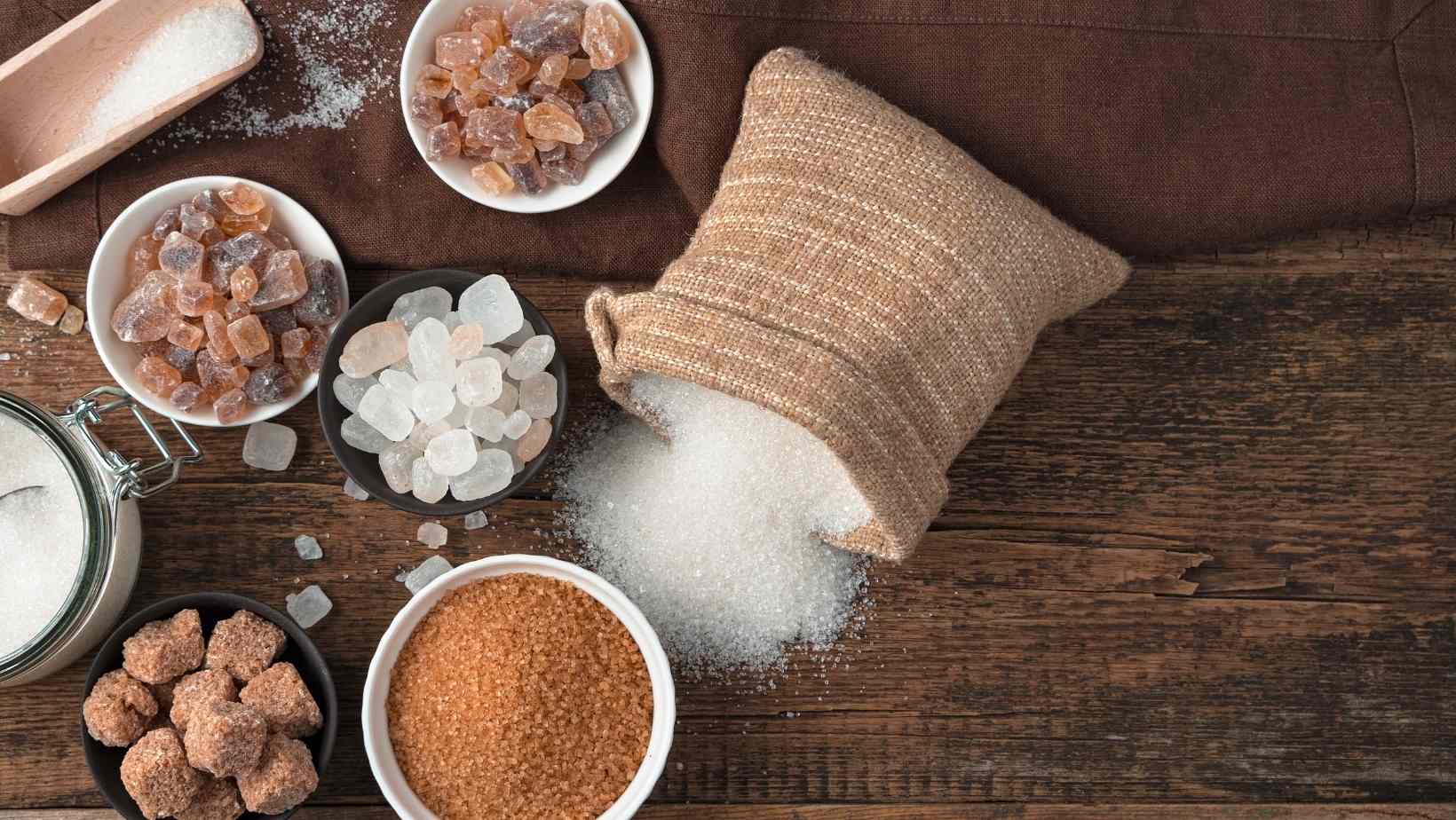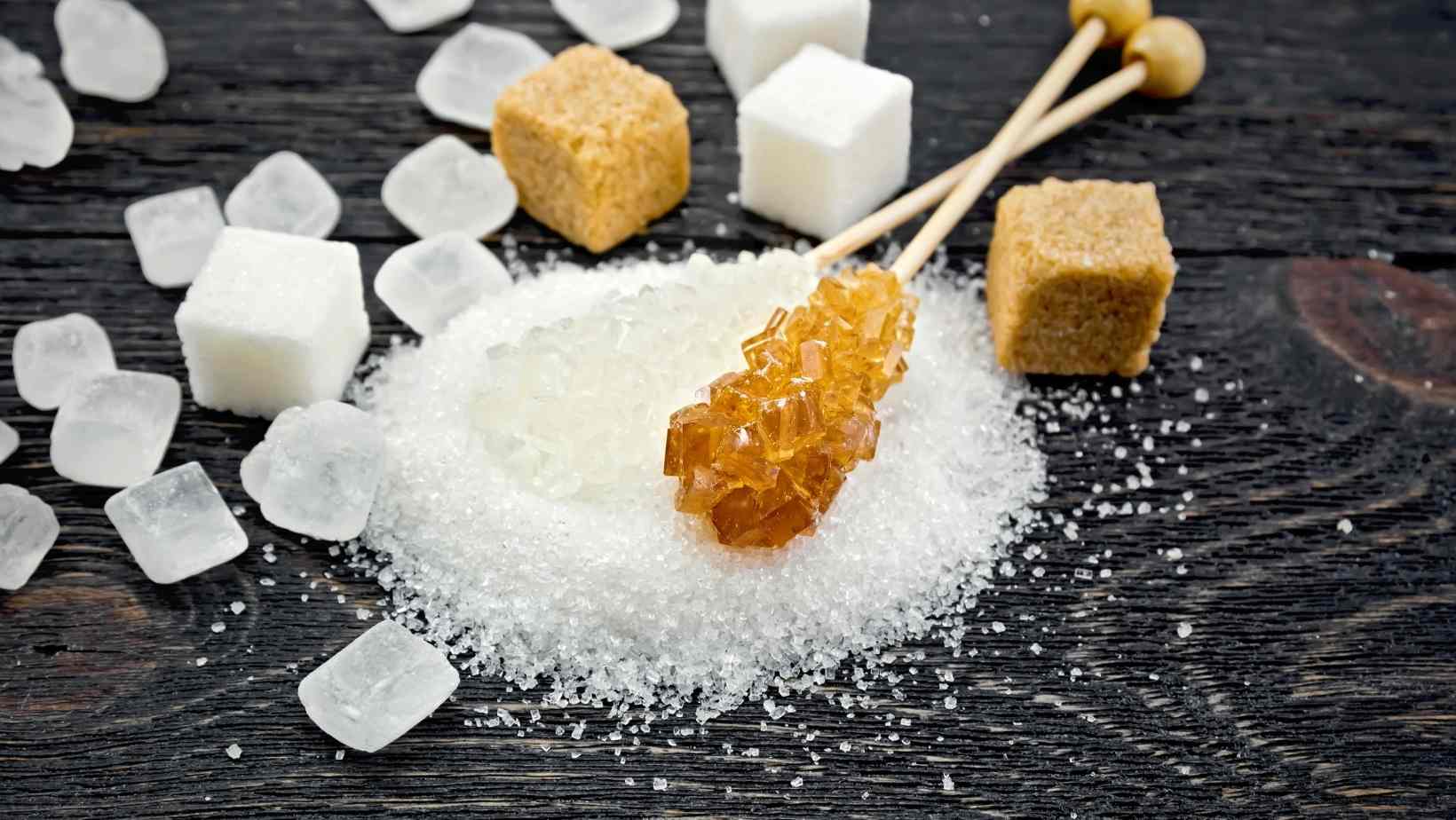Sugar is a plant-based commodity, which may surprise you. During photosynthesis, all green plants produce sugar. The most effective sugar plants are sugar cane and sugar beets.
When it comes to sugar nutrition, you may hear a variety of terms for sugar, including sucrose, glucose, and fructose. Sugars come in a variety of forms, including these and many more. They team together to make a variety of your favorite snacks.

Sucrose and fructose, despite their differences, have one thing in common: how they effect your health. Sugar, being a carbohydrate, plays a crucial part in a number of bodily activities. Sugar, like any other carbohydrate, may be harmful in excess.
Jump to:
All About Sugar
Every sugar may be classified as a monosaccharide or a disaccharide.
A monosaccharide is a sugar molecule with just one sugar molecule. It is the tiniest component of all sugars. Monosaccharides are divided into three categories: glucose, fructose, and galactose. When two monosaccharides combine, they form a disaccharide, which is a bigger sugar molecule.
A disaccharide is formed when two monosaccharides are linked together. Sucrose, lactose, and maltose are the three kinds of disaccharides. The source of a disaccharide may easily be determined. Lactose in dairy products or maltose in cereals might be the culprit.
Many common disaccharides, such as sucrose and lactose, include glucose. Your bloodstream absorbs glucose as it is processed by your body. The more glucose your body absorbs, the higher your chance of developing health problems.
Everything You Need to Know About Fructose
Fructose, sometimes known as fruit sugar, is a monosaccharide. Fruits, vegetables, honey, sugar cane, and sugar beets all contain fructose. It's about 1.5 times as sweet as regular table sugar.
Fructose is processed differently by your body than other sugars. Fructose is processed and turned into energy in the liver. This implies your body doesn't require insulin to digest fructose, and it has a reduced impact on blood glucose levels.
Sucrose Is Everything
Sucrose is a glucose and fructose disaccharide. It's frequently referred to as "table sugar," although it may also be found in fruits, vegetables, and nuts in their natural state. It is, however, commercially manufactured via a refining process from sugar cane and sugar beets.
When sucrose is digested by your body, the fructose is handled by your liver, while the glucose is transported to your circulation by insulin. If you consume too much glucose, your blood sugar levels may become unstable.
Sugar is used for more than simply coffee sweetening:
- It gives baked foods structure and uniformity.
- Jams and jellies use it as a preservative.
- It helps to keep liquid separation stable.
- It is what gives meals their distinct tastes.
Health Impacts of Sucrose and Fructose
Sugar's place in your diet is a hotly debated health subject. Understanding how sugar interacts with your body may influence your decision to become sugar-free.
Sweets are carbohydrates, and your body needs both carbs and sugars to function properly. Every day, your brain needs roughly 130 grams of glucose to keep it running efficiently. Carbohydrates provide vital energy to your body.

Sugars are sugars, and your body doesn't care where they originate from. The sugar in your coffee and the sugar in your morning peach are identical. The source of your sucrose, on the other hand, is important for a multitude of health reasons. Choosing intelligently may help to reduce the number of health hazards.
Sucrose is obtained from entire meals such as fruits and vegetables, which also include fiber, vitamins, and minerals. When you consume sucrose in the form of soda or sweets, your body receives solely sugar, and frequently too much of it. This is the point at which the danger begins.
Too much added sugar (fructose or sucrose) in your diet might be harmful to your health.
Sugar is bad for your heart. According to studies, a high-sugar diet raises your chance of dying from cardiovascular disease by about 40%. Greater sugar means more danger.
Fructose is bad for your liver. Fruit sugar is a better approach to control blood sugar, but it might cause liver issues. Sugar is digested in the same way as alcohol is, thus too much of it may cause fatty liver disease and diabetes.
Sugary beverages and snacks are common sources of added sugars in the diet. They may result in:
- Weight gain
- Blood pressure that is too high
- Inflammation that persists
What Should I Do?
It is suggested that you consume no more than 150 calories per day from added sugars, or 36 grams of sugar. To put that in perspective, a 12-ounce can of cola has around 40 grams of sugar. You receive more nutrients from entire meals like fruits and vegetables than from a can of soda. So, choose your sugars carefully.




